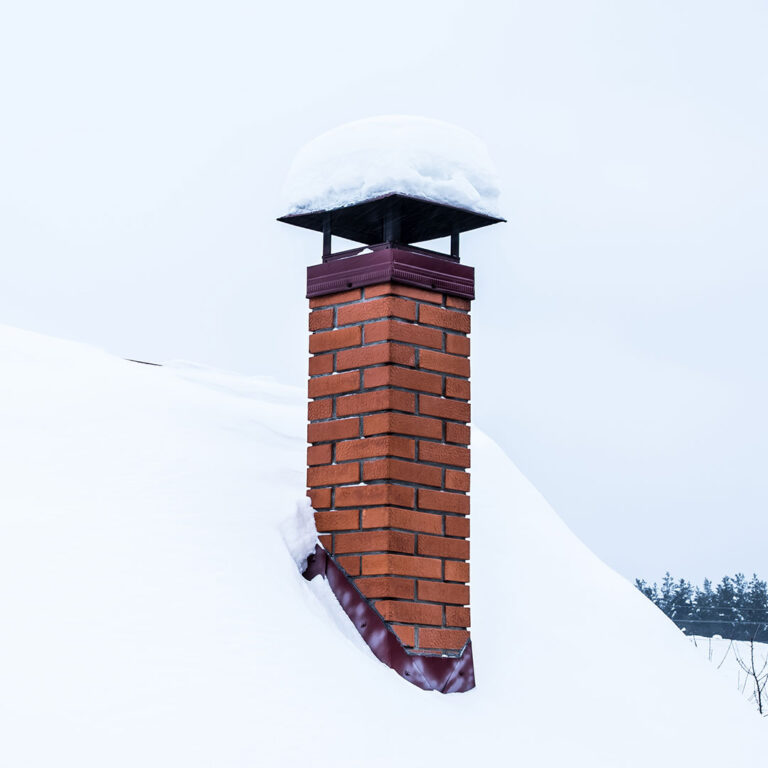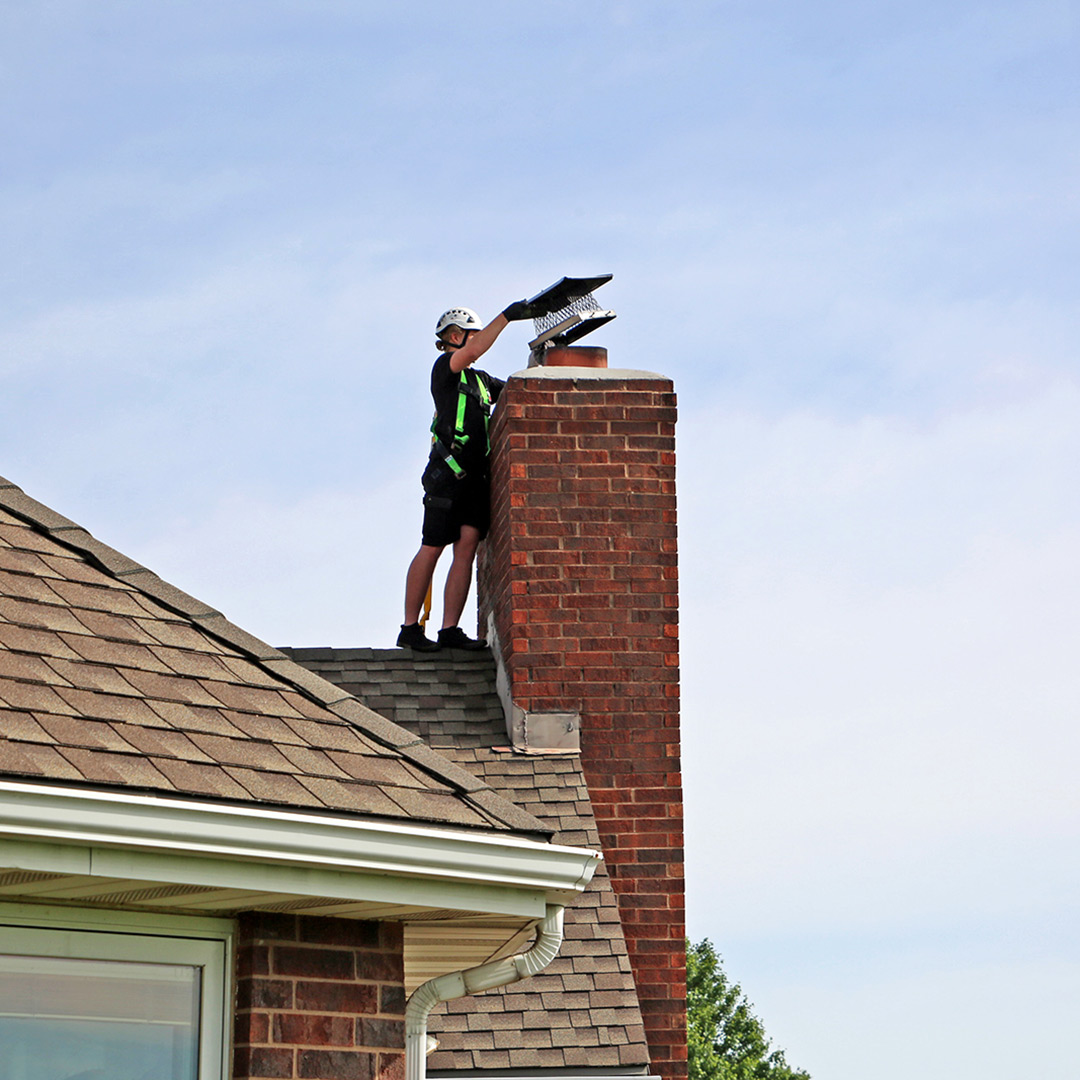With the arrival of cold weather comes snowfall and all the things you associate with it, like shoveling snow, clearing snow from your windshield, and even building snowmen. You may not think about the consequences of snow building up on your chimney. Do we have your attention now? Don’t worry; there is an answer. Here is a guide to snowfall woes: How to Handle Snow in Your Chimney Like a Pro.
The Unseen Damage of Snowfall on a Chimney
 The Snow’s Weight
The Snow’s Weight
There are several types of damage that snow can cause to your chimney. Masonry chimneys are especially vulnerable to snow damage. It can build up on your chimney when it snows, causing it to bear extra weight. When the weight becomes too great, it can cause parts of your chimney to bow, which in turn can lead to expensive repairs.
Melting Snow
Even more damaging than snow’s weight on your chimney is melting snow. Why? Because if you have a masonry chimney, its bricks or stone are baked by the sun nearly year-round. After a few years of baking in the sun, the bricks or stones start to break down, making them more porous and giving them a capillary action much like that of a sponge. When your chimney hasn’t been maintained by a qualified chimney sweep service, your chimney’s bricks or stones are likely porous. When it snows on your chimney, and the snow begins to melt, the chimney will absorb it; temperatures will probably drop below freezing the same night, causing the water the bricks or stones have absorbed to expand and cause them to break down further. After a few of these cycles, your chimney’s bricks or stones will begin to spall; you will see telltale signs such as a white powder on the outside of the chimney or pieces of brick or stone on the ground. When your chimney begins to crumble, it must be repaired immediately to prevent it from collapsing.
Rust from Snow
When snow invades your chimney, it will cause its metal components to become rusted to the point where they need to be repaired or replaced by a certified chimney sweep service.
 How Do You Protect Your Chimney from Snow?
How Do You Protect Your Chimney from Snow?
The best way to protect your chimney from the ravages of snow and ice is to hire a professional chimney sweep service to winterize it. The best time to winterize your chimney is before winter, but that doesn’t mean it can’t be winterized in winter. The sooner you winterize your chimney, the less likely snow or ice will cause damage.
If your chimney lacks a chimney cap, one should be added. It adds an extra level of protection against snow, rain, or hail from getting inside your chimney and causing damage.
Fluesbrothers Is the Chimney Winterizing Expert
We have been winterizing chimneys just like yours for well over a decade in the greater Kansas City area. Call us today at 913-236-7141 or fill out our online contact form if you suspect your chimney has structural issues. One of our chimney experts will be happy to answer any questions you may have and schedule an appointment. Don’t wait until your chimney has extensive snow damage; get in touch now.



